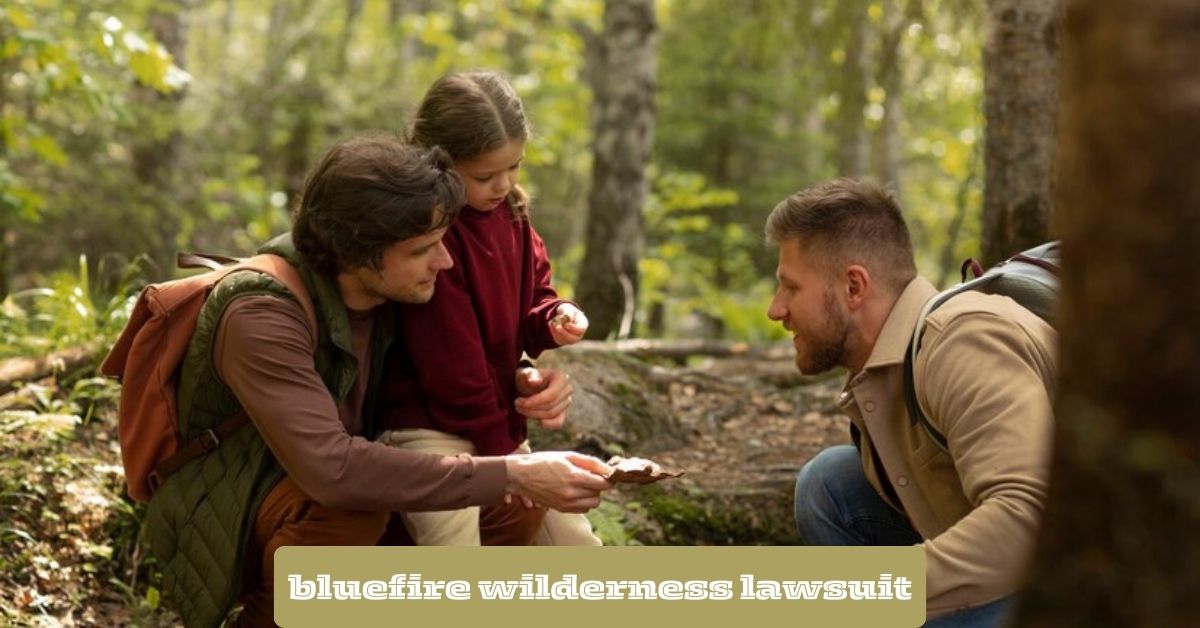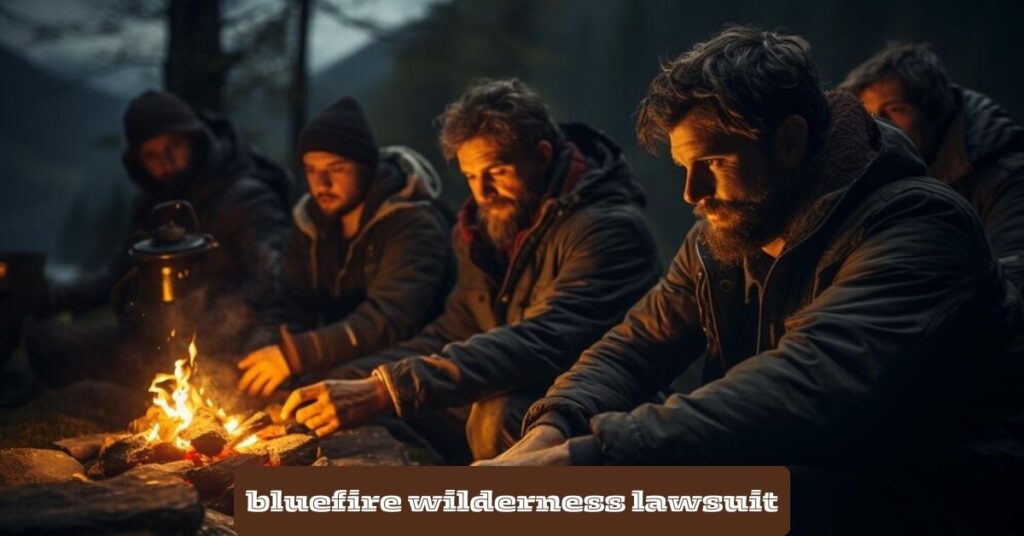Review
The BlueFire Wilderness Lawsuit: Unpacking the Controversy and Its Implications

BlueFire Wilderness Therapy is a therapeutic wilderness program renowned for its mission to aid troubled adolescents through nature-based interventions. For years, it has been a beacon of hope for families grappling with the challenges of raising at-risk youth. However, recent legal troubles have cast a shadow over its reputation. This article provides a comprehensive overview of the BlueFire Wilderness lawsuit, detailing the key allegations, the responses from the program, and the broader implications for the therapeutic wilderness industry.
Background of bluefire wilderness lawsuit
Before diving into the specifics of the lawsuit, it is essential to understand what bluefire wilderness lawsuit entails. Located in the picturesque landscapes of southern Idaho, BlueFire Wilderness offers a range of therapeutic services aimed at adolescents facing emotional, behavioral, and mental health challenges. The program combines traditional therapy with outdoor experiences, including hiking, camping, and survival skills, to promote personal growth and healing.
Bluefire wilderness lawsuit has garnered praise for its innovative approach, which leverages the restorative power of nature to foster resilience and self-discovery among its participants. The program emphasizes a holistic treatment model that includes individual therapy, group therapy, and family therapy, aiming to address the underlying issues affecting the adolescents and to equip them with skills for a healthier future.
The Lawsuit: A Closer Look
In recent months,bluefire wilderness lawsuit has found itself at the center of a legal storm. The lawsuit, filed by a former participant and their family, alleges serious misconduct and negligence within the program. While the full details are still emerging, the key allegations paint a troubling picture of the experiences some participants allegedly endured.
Key Allegations
1. Negligence
The lawsuit’s primary charge is negligence. The plaintiffs claim that bluefire wilderness lawsuit failed to provide adequate care and supervision, resulting in significant harm to the participant. This includes accusations of insufficient medical oversight and a lack of appropriate safety measures. According to the lawsuit, these lapses led to both physical and psychological trauma.
2. Abuse
One of the most severe allegations involves claims of physical and emotional abuse by staff members. The lawsuit details instances where participants were allegedly subjected to excessive force and inappropriate disciplinary actions. Such claims, if proven true, suggest a grave breach of trust and professional ethics.
3. Misrepresentation
The plaintiffs also accuse bluefire wilderness lawsuit of misrepresenting their services and outcomes. Families were allegedly given assurances about the program’s effectiveness and safety that did not align with the reality experienced by participants. This misrepresentation is claimed to have influenced the decision of parents to enroll their children in the program under false pretenses.
4. Lack of Professionalism
The lawsuit questions the qualifications and training of some staff members, alleging that they lacked the necessary expertise to handle the complex needs of the adolescents in their care. This includes claims of untrained staff being placed in roles that require specialized therapeutic skills.
BlueFire Wilderness’ Response
In response to the lawsuit, bluefire wilderness lawsuit has initiated an internal investigation to address the allegations. The program has expressed a commitment to transparency and improvement, stating that they take all claims seriously and are dedicated to ensuring the safety and well-being of their participants.
Internal Investigation
Bluefire wilderness lawsuit has launched a thorough internal review to assess the validity of the allegations. This investigation aims to identify any shortcomings in their protocols and to implement corrective measures where necessary. The program has temporarily suspended the staff members named in the lawsuit pending the outcome of this investigation.
Commitment to Improvement
The leadership of bluefire wilderness lawsuit has reiterated their commitment to maintaining high standards of care. They have promised to enhance their safety protocols and treatment methods to prevent any future incidents. Additionally, the program has pledged to cooperate fully with the legal process to ensure a fair and just resolution of the case.
Industry Response
The lawsuit against bluefire wilderness lawsuit has sparked a broader conversation about the therapeutic wilderness industry as a whole. Critics argue that the industry lacks consistent standards and sufficient oversight, which can lead to situations where vulnerable individuals are placed at risk. There are calls for increased regulation to ensure that all programs adhere to rigorous safety and ethical standards.
Broader Implications for the Therapeutic Wilderness Industry
The allegations against bluefire wilderness lawsuit have far-reaching implications for the therapeutic wilderness industry. This case highlights the urgent need for enhanced transparency, accountability, and regulation in an industry that deals with some of society’s most vulnerable individuals.
The Need for Regulation
One of the primary criticisms leveled against the therapeutic wilderness industry is the lack of consistent regulatory oversight. Unlike other therapeutic settings, wilderness programs often operate in remote locations, which can make it challenging to monitor their practices effectively. This regulatory gap can lead to variations in the quality of care provided across different programs.
Advocates for increased regulation argue that establishing standardized guidelines and regular inspections could help ensure that all wilderness therapy programs maintain high standards of care and safety. Such measures could include mandatory staff training, minimum safety protocols, and regular audits to verify compliance.
Ensuring Staff Qualifications
The allegations of unqualified staff at bluefire wilderness lawsuit underscore the importance of ensuring that all personnel in therapeutic roles are adequately trained and certified. This is particularly crucial in wilderness therapy, where staff members must be equipped to handle a range of situations, from medical emergencies to psychological crises.
Programs should invest in comprehensive training for their staff, covering areas such as crisis intervention, mental health first aid, and trauma-informed care. Additionally, hiring practices should prioritize individuals with relevant qualifications and experience in both therapeutic and wilderness settings.
Enhancing Transparency
Transparency is key to building trust with families considering enrolling their children in therapeutic wilderness programs. Programs should provide clear and honest information about their services, outcomes, and any potential risks involved. This includes being upfront about the qualifications of their staff, the nature of the interventions used, and the measures in place to ensure participant safety.
Programs can also benefit from adopting transparent reporting practices, where they regularly publish data on their outcomes and any incidents that occur. This not only fosters trust but also allows for continuous improvement based on empirical evidence.
Promoting Accountability
Accountability mechanisms are essential to ensure that programs adhere to their stated standards and promptly address any issues that arise. This can include establishing independent review boards to oversee the conduct of programs and investigate any complaints or incidents. Additionally, creating channels for participants and their families to provide feedback and report concerns can help identify and rectify problems early on.
The Role of Families

Families play a crucial role in the therapeutic process, and their involvement can significantly influence the outcomes for their children. It is essential for families to conduct thorough research before enrolling their children in any program. This includes asking detailed questions about the program’s safety protocols, staff qualifications, and therapeutic approaches.
Families should also seek out reviews and testimonials from former participants and their families to gain insights into the program’s strengths and weaknesses. Engaging with parent support groups and professional associations can provide valuable information and guidance in making an informed decision.
Conclusion
The BlueFire Wilderness lawsuit serves as a sobering reminder of the critical importance of maintaining the highest standards of care and safety in therapeutic programs for troubled youth. While the legal process will ultimately determine the merits of the allegations, the case has already prompted increased scrutiny of the industry and calls for more stringent regulations.
As the therapeutic wilderness industry navigates these challenges, it is imperative for programs to engage in continuous self-assessment and improvement. Ensuring the safety and well-being of participants must remain the top priority, supported by transparent practices, qualified staff, and robust accountability mechanisms.
Families seeking help for their troubled adolescents should exercise due diligence, carefully researching any program they are considering to ensure it meets the necessary safety and ethical standards. By fostering a culture of transparency, accountability, and continuous improvement, the therapeutic wilderness industry can continue to provide valuable support to young individuals in need of healing and transformation.
In conclusion, the unfolding saga of the BlueFire Wilderness lawsuit underscores the complex interplay between therapeutic care, regulatory oversight, and the imperative to protect vulnerable populations. As this case progresses, it will undoubtedly shape the future landscape of wilderness therapy, driving necessary reforms and reinforcing the commitment to safeguarding the well-being of all participants.
-

 Review2 months ago
Review2 months agoεμφανιση σβισμενον φωτογραφιων: Restoring Deleted Photos Made Easy
-

 Artificial Intelligence3 weeks ago
Artificial Intelligence3 weeks agoAmazon’s GPT-55X: Revolutionizing AI with Advanced Language and Multimodal Capabilities
-

 General1 month ago
General1 month agoResolving the “errordomain= nscocoaerrordomain & errormessage =could not find the specified shortcut.&errorcode=4” Error: A Comprehensive Guide
-

 Artificial Intelligence1 month ago
Artificial Intelligence1 month agoExperts AigilbertWired: Achieving Success Through AI Solutions



















Pingback: Abraham Quirós Villalba: A Profile in Philology and Content Creation